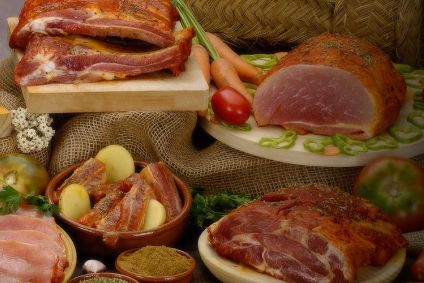
A new Spanish law aimed at ensuring farmers are properly paid for the food they produce could raise the price of meat, fruit and vegetables, it is feared.
The law, which came into effect on 27 February, is known as the Ley de la Cadena Alimentaria or Food Supply Chain Law.
The law’s introduction follows protests by Spanish farmers. Existing anger about low food prices has recently been aggravated by US tariffs and the looming threat of reduced EU Common Agricultural Policy farm payments.
At the heart of the new law is a legal requirement that prices paid for agricultural products cover their cost of production. In practice, this means a written contract that specifies the price is now obligatory between buyers and sellers, Tomás Rodríguez Serrano, the director of Spanish sheep and goat meat producer’s union, Interovic, told just-food.
“For example, between an animal breeder and an abattoir. Now there has to be a written contract that includes the price. That’s very important,” he said. The prices themselves are not set by the government, Serrano confirmed, but are instead based on an existing list of reference prices.
The association representing Spain’s larger retailers, Anged, broadly welcomed the law. It added, however, the supply chains of large outlets are “generally shorter” with fewer intermediaries and more efficiencies, meaning “they do not make products artificially more expensive”.
At the producer level, the effects are unclear as yet. “It’s too soon to know, but we are not expecting any major impact from the new law,” said Alberto Jiménez, co-founder of Spanish baby food producer Smileat.
However, Spanish food sector commentator José Maria Ferrer said it is probable supermarkets will pass any extra cost on to the consumers and some of that will go back to the farmers. “It also means food cannot be used promotionally as [a] loss leader,” he said, which will in itself mean higher prices.
Speaking to Spanish national daily paper, ABC, last month, Spain’s Minister of Agriculture, Fisheries and Food, Luis Planas, insisted “the consumer will not be the one to pay for the rebalancing of the food chain.”
In the same interview, he indicated consumer associations were sympathetic to the plight of farmers and said he was in favour of increasing supply chain transparency “so that the added value of each part is known”.

Discover B2B Marketing That Performs
Combine business intelligence and editorial excellence to reach engaged professionals across 36 leading media platforms.





